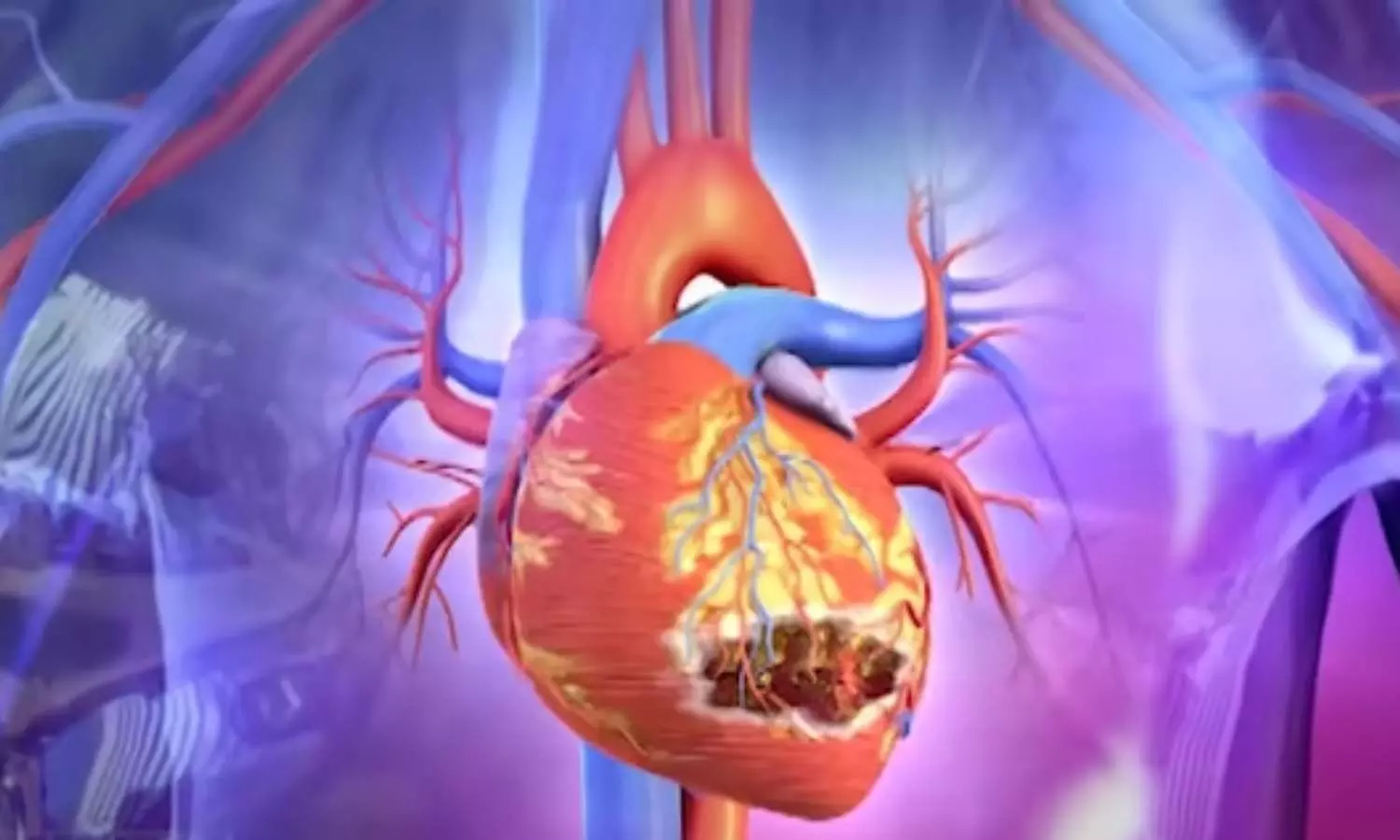Routine H. pylori Screening Offers No Benefit of curbing bleeding risk After Acute MI: JAMA
- byDoctor News Daily Team
- 11 October, 2025
- 0 Comments
- 0 Mins

According to a new study published inJAMA, in unselected patients with acute myocardial infarction, routine Helicobacter pylori screening did not significantly lower the risk of upper gastrointestinal (GI) bleeding. The study was published by Robin H. and colleagues. Upper GI bleeding is an established complication following myocardial infarction and frequently attributed to the anticoagulant or antiplatelet therapy. The objective of this study was to identify if routine H. pylori screening during hospitalization for myocardial infarction could decrease upper gastrointestinal bleeding and enhance clinical outcomes versus usual care. This multicenter, open-label, cluster randomized, crossover trial was performed at 35 Swedish hospitals, organized in 18 clusters. The trial lasted from November 17, 2021, to January 17, 2024, with follow-up on January 17, 2025. The hospital clusters were each subjected to two one-year periods: one with usual H. pylori screening of all patients admitted with myocardial infarction, and one with standard care, with a two-month washout interval between them. During the periods of screening, patients received H. pylori testing with the urea breath test alongside routine post–myocardial infarction care. Information was obtained by means of a national clinical registry combined with Swedish health data registries. The end point was upper gastrointestinal bleeding and was analyzed with a negative binomial model in an intention-to-treat population. • 18,466 patients (median 71 years, interquartile range 61–79 years) were enrolled, including 13,138 males (71%). 9245 of the patients had been hospitalized during the screening periods for H. pylori, and 9221 during nonscreening (usual care) periods. • At hospital admission, 2284 patients in the screening group and 2275 in the nonscreening group (both 24.7%) used proton pump inhibitors (PPIs). • Among 6480 patients (70%) screened during the screening periods, 1532 (23.6%) were positive for infection. After a median of 1.9 years' follow-up, 299 patients in the screening group had upper gastrointestinal bleeding, compared with 336 in the control group. • The event rate was 16.8 events per 1000 person-years in the screening group and 19.2 events per 1000 person-years in the usual care group, yielding a rate ratio (RR) of 0.90 (95% CI, 0.77–1.05; P = 0.18). • Subgroup analysis found the effect of screening to differ depending on admission anemia status. • The rate ratio was 0.98 (95% CI, 0.80–1.21) among nonanemic patients, with no difference. •For those with mild anemia, RR was 0.64 (95% CI, 0.42–0.98), and for those with moderate to severe anemia, RR was 0.44 (95% CI, 0.23–0.87), suggesting benefit of screening among these subgroups (P for interaction = 0.03). The study concluded that among hospitalized patients with acute myocardial infarction, routine Helicobacter pylori screening had no significant protective effect against upper gastrointestinal bleeding in comparison with standard care. Future studies might consider selective screening of high-risk subgroups to maximize gastrointestinal protection during cardiac therapy. Hofmann R, James S, Sundqvist MO, et al. Helicobacter pylori Screening After Acute Myocardial Infarction: The Cluster Randomized Crossover HELP-MI SWEDEHEART Trial. JAMA. 2025;334(13):1160–1169. doi:10.1001/jama.2025.15047
Disclaimer: This website is designed for healthcare professionals and serves solely for informational purposes.
The content provided should not be interpreted as medical advice, diagnosis, treatment recommendations, prescriptions, or endorsements of specific medical practices. It is not a replacement for professional medical consultation or the expertise of a licensed healthcare provider.
Given the ever-evolving nature of medical science, we strive to keep our information accurate and up to date. However, we do not guarantee the completeness or accuracy of the content.
If you come across any inconsistencies, please reach out to us at
admin@doctornewsdaily.com.
We do not support or endorse medical opinions, treatments, or recommendations that contradict the advice of qualified healthcare professionals.
By using this website, you agree to our
Terms of Use,
Privacy Policy, and
Advertisement Policy.
For further details, please review our
Full Disclaimer.
Recent News
NMC approves 2,337 new PG medical seats for NEET P...
- 22 October, 2025
Rajasthan MBBS student airlifted from Kazakhstan a...
- 22 October, 2025
NEET SS 2025 now on December 26th, 27th: NBE
- 22 October, 2025
Daily Newsletter
Get all the top stories from Blogs to keep track.


0 Comments
Post a comment
No comments yet. Be the first to comment!